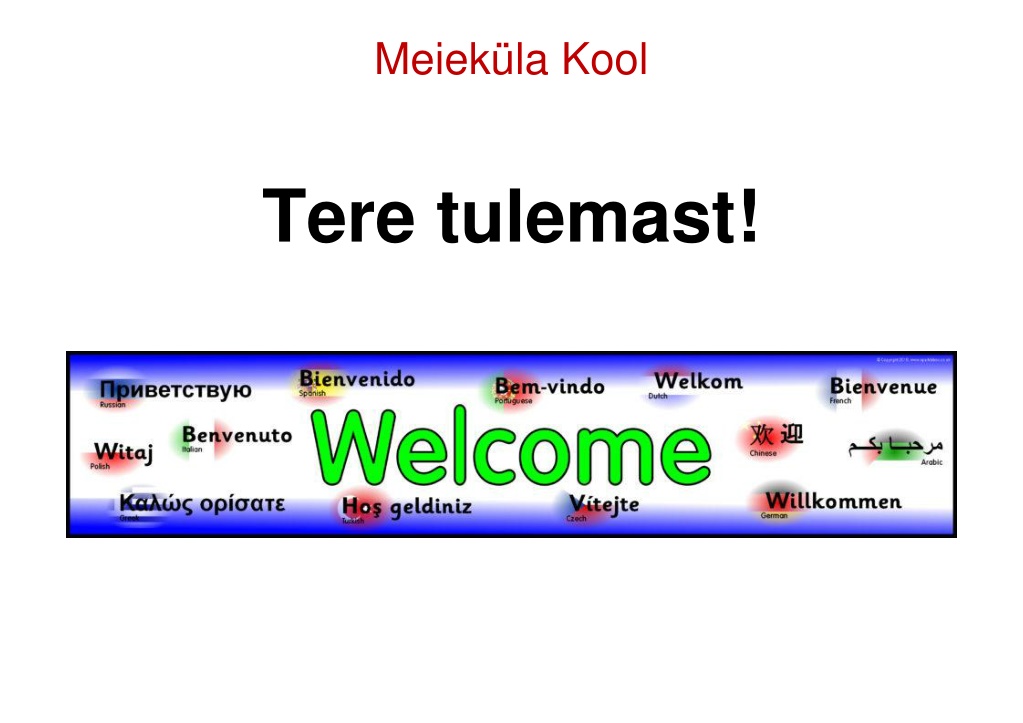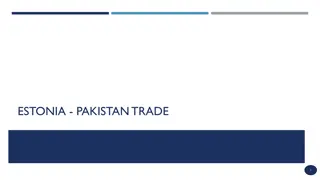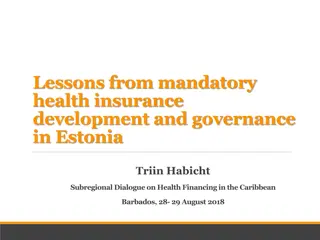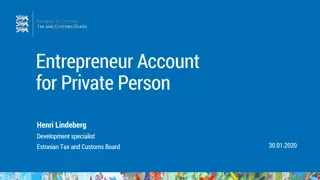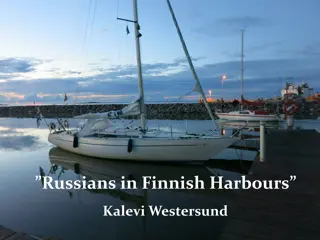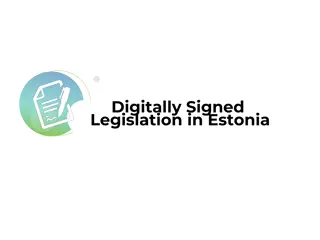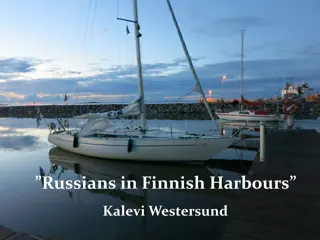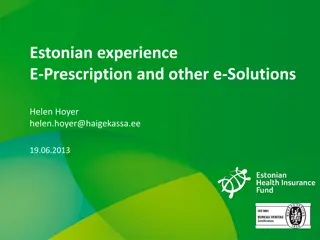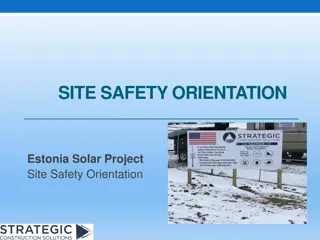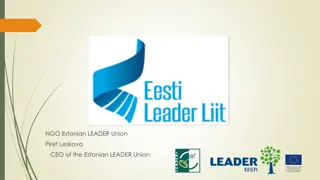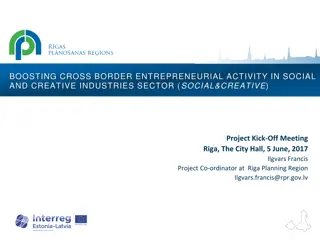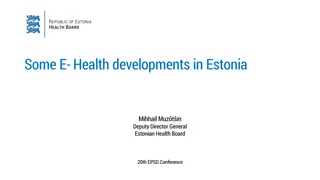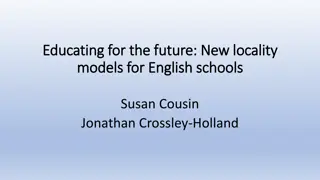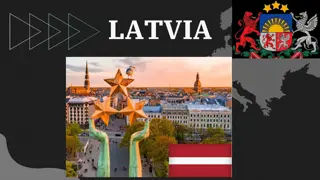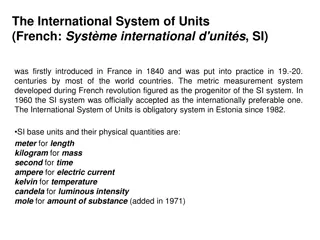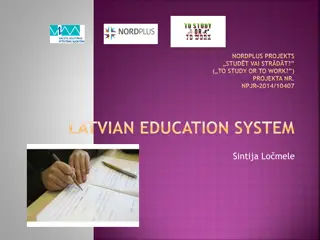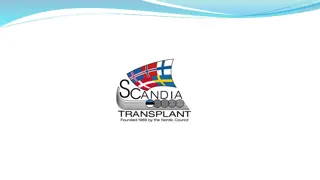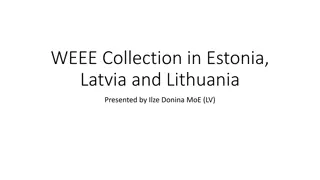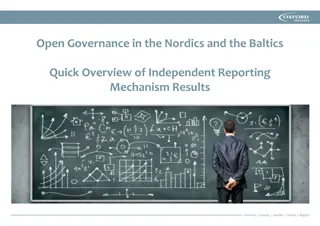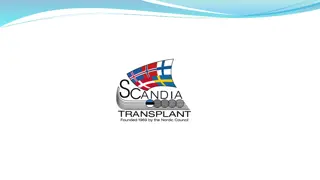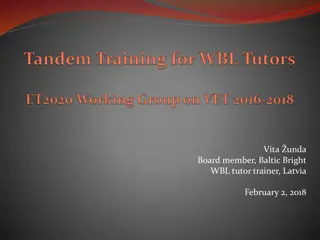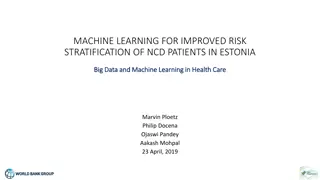Overview of Education System in Estonia
Education in Estonia is compulsory for children aged 7 to 16, with a focus on secondary education. The system includes municipal schools, those requiring admission tests, private schools, special needs schools, and home schooling options. The three stages of basic school cater to different age groups, with increasing independence and responsibility. After basic school, students have options for general secondary education, vocational education, or entering the workforce. The staff at schools include various roles such as directors, head teachers, class teachers, and support staff like psychologists and nurses.
Download Presentation

Please find below an Image/Link to download the presentation.
The content on the website is provided AS IS for your information and personal use only. It may not be sold, licensed, or shared on other websites without obtaining consent from the author. Download presentation by click this link. If you encounter any issues during the download, it is possible that the publisher has removed the file from their server.
E N D
Presentation Transcript
Meiekla Kool Tere tulemast!
Todays topics Key people at school Learn about topics: Education system in Estonia Subjects, homework, how to help your child Communication with the school School meals, clothes School holidays, celebrations Discussion - arutelu Tea break - teepaus Tour of the school jalutusk ik koolis
Education in Estonia In Estonia it is compulsory for children to attend school between the ages of 7 and 16. Education is deemed important in Estonia: 80% of all young secondary education, i.e. graduate from gymnasium. people get upper
Education in Estonia Municipal schools that service catchment areas Schools that require admission test and choose the students Private schools Schools for children with speacial needs Home schooling Languages: Estonian, Russian, English
Education in Estonia BASIC SCHOOL stage I: grades 1-3 subjects + children adapt to school life often a separate part of the building (shared canteen, gym) mostly one main teacher stage II: grades 4-6 kids become increasingly more responsible and independent learners stage III: grades 7-9
Education in Estonia AFTER BASIC SCHOOL Option 1 : general secondary education (gymnasium) Option 2: get vocational education Option 3: move into work-life SECONDARY EDUCATION grades 10-12 general or vocational secondary education Successful completion of gymnasium university, vocational high school, work
Staff at school School director director: main person in charge of running the school! Head teacher ppealajuhataja: everything about how studies are organized at school Class teacher klassijuhataja: your main contact person at school Support staff: secretary (sekret r) psychologist (ps hholoog), social pedagogue (sotsiaalpedagoog), activity manger (huvijuht) special education teacher (eripedagoog) speech therapist (logopeed) special education needs coordinator (HEVKO) nurse (med de)
Student attendance Students must attend school every day. If a student is absent from school, parents must explain their absence the. This can be done by writing to e-Kool, sending sms or a phone call to class teacher. School excursions and sports events are part of the school curriculum and all students are expected to attend.
School subjects The broader categories are Estonian language and literature Foreign languages Mathematics Natural sciences (nature, biology, chemistry, physics, geography) Social sciences (history, society class, Arts (visual arts and music) Technology Sports
Homework After the school, students are expected to: Do the homework according to what teacher told them Use their timetable and diary to plan for the next day. Homework can be found in e-Kool! Some tasks can be done quickly, some homework require more preparation and looking for information, and take longer to complete.
Helping your child with learning Ensure they attend school every day. Provide them with a quiet place to study at home. Encourage your child to read. Take an active interest in their work. Encourage and praise all your child s efforts. Speak to the teacher if you are concerned about your child.
Communication with the school What to expect: Information about your child in e-Kool Notes about some special activities (for example, excursions) Yearly report Individual meetings (parent-teacher interviews) There will be also parental meetings approximately 4-6 times a year. Parents first contact is the class teacher you can always approach your teacher and ask, if you doubt!
School supplies, clothes School books are free of charge and given to the child by the school Supplies depend on the class notebooks, diary, pens, etc - the information will be given by your teacher School bag School clothes: clothes that are comfortable to wear (but the first school day smaller kids dress up a bit ) indoor shoes! gym clothes
School meals Students have meals at schools the younger classes eat at 10:20-10:40 the older classes eat at 11:20-11:40 Meals are free / partly paid for by the state, partly by the parents. IT IS IMPORTANT THAT THE CHILD EATS, OTHERWISE IT IS HARD TO FOCUS! What s on the menu? Warm, healthy meals! grains, vegetables, meat, fruits, desserts Students can choose vegetarian meals that are without meat. Children can also buy some extra at the caf (cookies, bananas etc). Prices are around 0.5-2 eur per item.
School start, holidays and celebrations School starts normally on 1stof September. It is a tradition that smaller children then bring flowers to their class teachers. AUTUMN: 25 to 31 October 2021 CHRISTMAS: 23 December 2021 to 9 January 2022 WINTER: 28 February to 6 March 2022 SPRING: 25 April to 1 May 2022 (except grade 12) SUMMER: 14 June to 31 August 2022 (except grades 9 and 12) CELEBRATIONS, concerts Christmas, Independence Day
Now what? Your questions Tea time Sort tour of the school
Tartu Rahvusvaheline Maja Selle n idisesitluse on ette valmsitanud MT Rahvusvaheline maja osana projektist Uued lapsed koolis: uussisser ndajatega seotud v ljakutsed Eesti koolides ja kohanemise toetamine , mida kaasrahastavad Euroopa Liit Varjupaiga-, R nde- ja Integratsioonifondi kaudu ning EV Siseministeerium www.internationalhouse.ee https://www.facebook.com /internationalhousetartu
